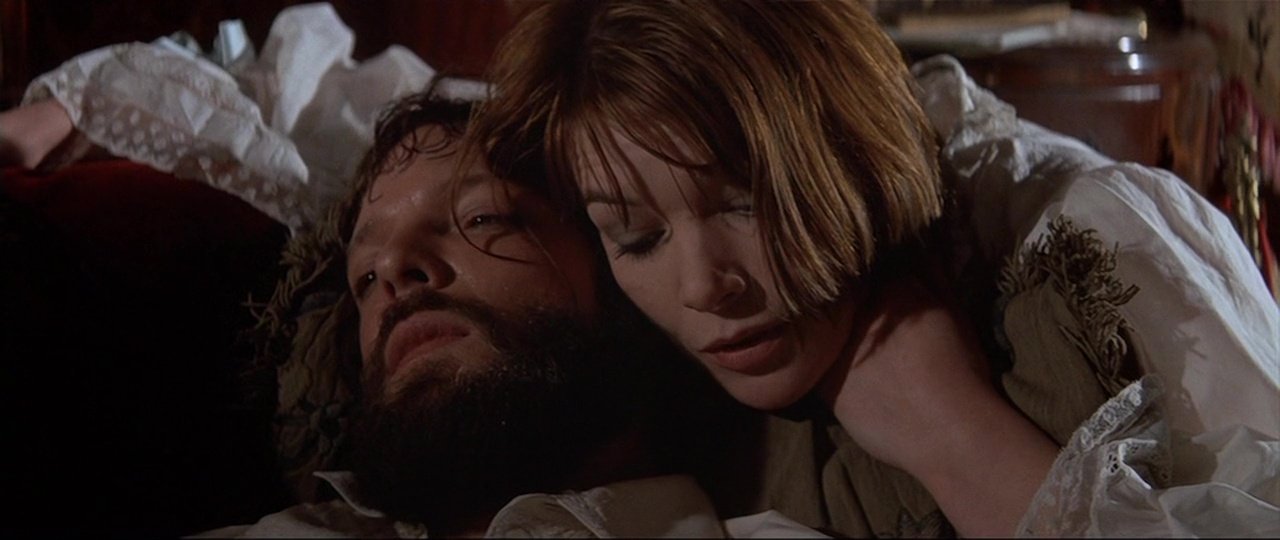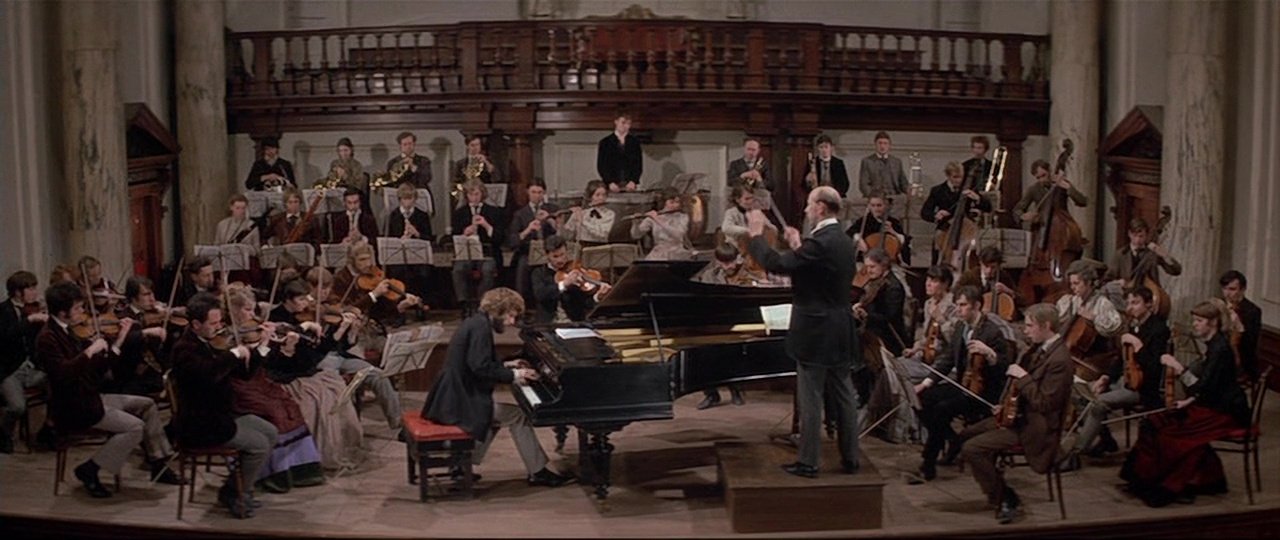The Music Lovers [1971]: Ken Russell was quite simply one of the maddest filmmakers ever. The performances under his direction were impassioned, his technical craft was uniquely demented, and the ideas he placed in his films were truly singular. His presence in world cinema, and even more so in British cinema, is completely unparalleled as his films went deep into the psyche and emotional turmoil of the fascinated, the curious, and the ambitious.
Read other entries in this series: Savage Messiah, Lisztomania
Despite a great deal of his films being critically maligned upon release (this one no exception), I’d declare that Ken Russell was as much an artist to his medium as the composers he made films about were to theirs. Like Tchaikovsky, the subject of his fourth theatrical film The Music Lovers, Russell demonstrated a similar sense of emotional intensity and rigorous ferocity, unfazed by what critics or tradition dictated.
This film mostly centres on Tchaikovsky’s marriage with Antonina (astonishingly played by Richard Chamberlain and Glenda Jackson respectively), which was always doomed due to his repressed homosexuality. His inner conflict is best expressed in a wild and claustrophobic scene of himself and his wife in a rocking carriageway, both drunk to the point of collapsing, and his bulging eyes and wide expressions as he gazes her nude body show horror, not at her, but at himself for what seems to him an unusual proclivity.

It’s scenes just like this that are incredibly shot and edited to match exactly with various musical pieces of Tchaikovsky’s. Russell applies his music to these dramatised moments of his life to stupendous effect. This film shows mostly a mannered account of his life, though these musical numbers punctuate this calmness with a musically minded grandiosity. There’s Tchaikovsky romancing with Antonina, often utilising slow-motion and glowing lighting, giving moments like these a serene dream-like quality, as if there no entirely real events, but memories that have accentuated their emotions.
But these musical moments become increasingly deranged, elaborate, and emotionally heightened, with a fireworks frenzy showing Tchaikovsky’s love for Anton, an uproarious celebration of his compositions displayed in the city centre in a colourful orgy of music and festivity, all of which leads up to the final scene, showing the deep tragedy of both Tchaikovsky and Antonina.
Also, Read – West Side Story’s First Look; Steven Spielberg is Remaking the Classic With Ansel Elgort
Just like with his 1972 film Savage Messiah, Russell pays as much attention to the wrought lives of his subjects as he does their artistry – in this film, Russell displays particular attention and seriousness to the craft of classical music. For an early scene of Tchaikovsky performing, Russell is not keen on cheating the musical prowess of his leading man – the camera leans right into Chamberlain as he frantically pounds away on the piano, dipping (not cutting) back between his furious fingers and his impassioned and focused face.

The Music Lovers was the first theatrical biopic he’d made about a classical composer, following it with two others (Gustav Mahler in Mahler, 1974, Franz Liszt and Richard Wanger in Lisztomania, 1975). But it was on television where Russell really went prolific with displaying the artistry and lives of his favourite composers, with TV documentaries (Edward Elgar in Elgar, 1962, Georges Delerue in Don’t Shoot the Composer, 1966, Edward Elgar again in Elgar: Fantasy of a Composer on a Bicycle, 2002) and TV movies (Béla Bartók in Bartok, 1964, Claude Debussy in The Debussy Film: Impressions of the French Composer, 1965, Frederick Delius and Eric Fenby in Songs of Summer, 1968, Richard Strauss in Dance of the Seven Veils, 1970, Vaughan Williams in Vaughan Williams: A Symphonic Portrait, 1983, Anton Bruckner in The Strange Affliction of Anton Bruckner, 1990, Arnold Bax in The Secret Life of Arnold Bax, 1992, and finally Bohuslav Martinu in The Mystery of Dr Martinu, 1992). If there’s ever been a director in cinema history that has obsessed more over classical composers in their filmmaking, let me know about them. And if that wasn’t enough, he even wrote books on the sex lives of four composers (Beethoven, Brahms, Elgar, and Delius).
Ken Russel was, in his own words ‘hooked’ on the work of classical composers. He a relayed an incredible story in The Guardian about how Tchaikovsky’s music (the first classical composer he’d heard) jolted him out of a catatonic state that his time at the Navy had left him in. The enormity of his appreciation for life-saving art is entirely conveyed in his work – Russell showed the passion of his subjects by instilling his own passion, of both their music and of filmmaking, into them.


